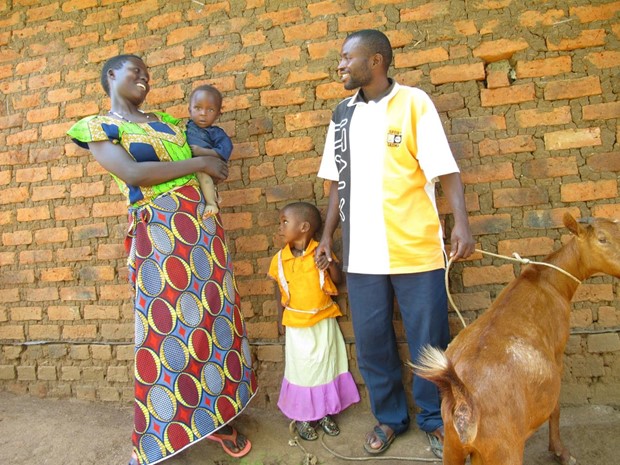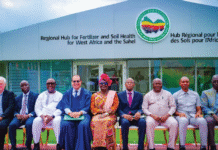The Food and Agriculture Organization of the United Nations (FAO), the Islamic Development Bank (IsDB), and the International Fund for Agricultural Development (IFAD) have joined hands in a significant partnership agreement aimed at enhancing global food security and nutrition. This trilateral cooperation agreement focuses on empowering rural smallholder farmers by providing them with accessible, affordable and adaptable technologies crucial for ensuring food security.
Dr. Mansur Muhtar, IsDB’s Vice President of Operations, emphasized the significance of this collaboration in addressing the pressing challenges of food insecurity and malnutrition that confront numerous IsDB Member Countries, particularly among small-scale farmers and pastoralist communities. He stated, “Our partnership with FAO and IFAD will play a pivotal role in identifying technologies suitable for integration into IsDB’s Food Security Response Program (FSRP) and other agricultural initiatives.” This alliance is poised to usher in transformative change in agricultural sustainability and food security across diverse regions.
“A majority of countries in the Near East and North Africa region projects increasing rates of food insecurity and malnutrition. These challenges are particularly more prevalent amongst small-scale farmers and pastoralist communities. The new tripartite cooperation between FAO, IsDB and IFAD will facilitate identification of technologies that have the potential for mainstreaming throughout the crop value chain to improve livelihoods of smallholder farmers and food security among the entire populations,” said AbdulHakim Elwaer, FAO Assistant Director-General and Regional Representative for the Near East and North Africa (NENA).
“This cooperation is important to FAO, as it is a first building block in the partnership between FAO and IsDB since the signing of an MoU in 2020.” Elwaer added.
“Technology has enabled small-scale producers to effectively contribute to sustainable agricultural development and food security. Despite the huge efforts to introduce new technologies to support farmers across the value chain, there is still an urgent need to increase capacities and accelerate innovation through partnerships. The cooperation agreement is a major milestone in our joining forces with other partners to help reach the United Nations Sustainable Development Goals and Saudi Vision 2030,” said Thouraya Triki, The Director of Sustainable Production, Markets, and Institutions Division, IFAD.
She added: “We aim through this agreement to share our knowledge and technical expertise with FAO and IsDB and benefit from this joint initiative to promote the scale of these technologies and strengthen the capacities of rural farmers to help them to reduce costs and increase production, income and food security.”
These transferable, adoptable, smart agricultural technologies and digital solutions will support the development of low carbon agriculture, improve resilience, contribute to poverty alleviation, create employment and reduce vulnerability to climate-related risks.
Aligned with the digital era, this collective initiative aspires to harness innovative tools and approaches with the objective of empowering rural households and smallholder family farmers to thrive despite multifaceted challenges. These technologies and solutions are anticipated not only to improve agricultural productivity but also to pave the way for sustainable, low-carbon practices. By enhancing resilience, reducing poverty, creating employment opportunities, and mitigating vulnerabilities linked to climate-induced risks, this partnership emerges as a source of optimism.
This tripartite agreement represents a synergistic collaboration, harnessing the expertise and resources of FAO, IsDB, and IFAD to empower rural households, uplift smallholder family farmers, and contribute to elevated global food security. Through the integration of cutting-edge technologies into agricultural practices, this partnership seeks to cultivate a sustainable and resilient food supply, fostering prosperity for communities worldwide.









